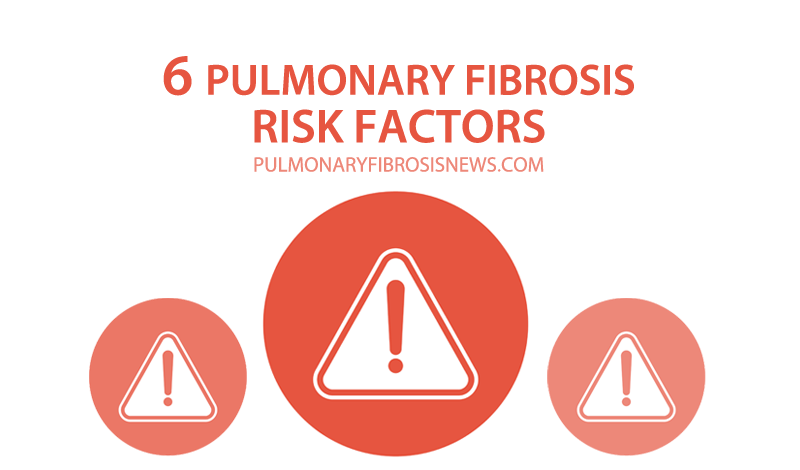6 Pulmonary Fibrosis Risk Factors

Pulmonary fibrosis (PF) is a respiratory disease characterized by the presence of scarred tissue in the lungs. “It can be challenging to figure out what caused your pulmonary fibrosis. Sometimes doctors are able to identify one or more causes of your disease, but it is also common to end up without an answer, despite completing a large number of medical tests. Diseases where a specific cause is not identified are often called “idiopathic” — meaning the cause is not identified or the disease occurs spontaneously,” according to the Pulmonary Fibrosis Foundation (PFF).
Although there is no known reason why and how pulmonary fibrosis develops, there are risk factors that can help you understand a little bit more. Here are six pulmonary fibrosis risk factors (source: Mayo Clinic website):
- Age: Pulmonary fibrosis is a disease that can affect anyone, at any age. It can be diagnosed in children and infants, but the disease is more likely to affect older people, such as the middle-aged and the elderly.
- Gender: Although pulmonary fibrosis can affect both genders, it is more likely to affect men than women.
- Smoking: If you’re a smoker, it’s more likely that you might be diagnosed with IPF. With that said, it’s not a fact that if you smoke, you will get it. PF can happen to anyone because there is still no known reason for why it develops.
- Occupation: Your job can actually increase the risk of developing pulmonary fibrosis. If you’re exposed to any kind of pollutants, metal dust or vegetable/animal dust that are dangerous, because the elements can damage your lungs, you are at risk.
- Cancer treatments: Because cancer treatments can be very aggressive on the immune system, it can be considered a risk factor for developing pulmonary fibrosis. Your body endures lot while going through radiation treatments, chemotherapy treatments, and other cancer therapies. If these treatments are more targeted to your chest, like breast cancer, the risk of being diagnosed with PF increases.
- Genetic links. Some types of PF appear to run in families, so a genetic link is sometimes suspected.
Learn more about pulmonary fibrosis: https://bit.ly/1VElTQA
Pulmonary Fibrosis News is strictly a news and information website about the disease. It does not provide medical advice, diagnosis or treatment. This content is not intended to be a substitute for professional medical advice, diagnosis, or treatment. Always seek the advice of your physician or other qualified health provider with any questions you may have regarding a medical condition. Never disregard professional medical advice or delay in seeking it because of something you have read on this website.







